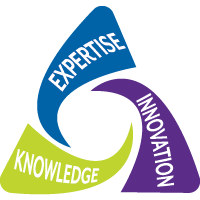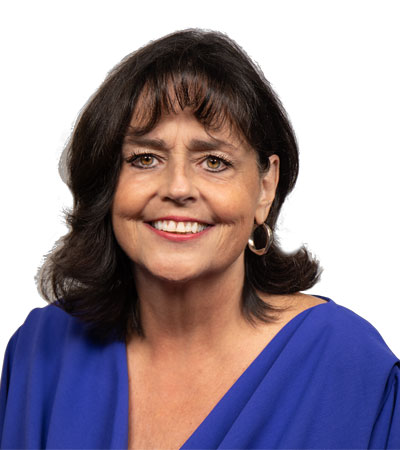Clinical Nurse Specialist Development
Content descriptions of the educational offerings provides greater detail to assist in choosing the right course.
Redesign of CNS Role: Ensuring Competent Practice & Measurable Outcomes within a Large Health Care System
The Clinical Nurse Specialist (CNS) is accountable for working in partnership with members of the health care team to design, implement, and measure safe, cost-effective, evidence-based care. To achieve these outcomes, the CNS must perform these skills in a competent manner, be visible, and measure the impact. Baseline CNS practice in a large Medical Center revealed significant variations in educational preparation, skill level, application of the role, visibility, and measurement of impact. This resulted in lack of understanding of the role by staff and organizational customers, confusion and overlap with other nursing roles, and insufficient leadership by the CNS for major practice changes.
This session will take the participant on a re-design journey. A redesign team was formed. A CNS consultant was hired to facilitate the process change. An initial assessment of CNS practice and organizational structure occurred. A survey based on the NACNS scope of practice and standards was conducted to determine customer expectations and insight into future challenges with role implementation. From the data, a new job description, performance appraisal, interview process/tool as well as a new CNS orientation plan was created. An implementation team compromised of CNS’s and nurse managers convened to design objective measures for the unit based partnership and prepare for the launch. Each CNS performed a skills self-assessment so an educational plan for professional development could be created.
The redesign achieved standardization of the CNS role qualifications, interview process, expectations of practice, and objective measurements of achievement. Through the process, the CNS group became a team focused on advancing the practice of nursing at a large academic institution in the mid-west.
Measuring Outcomes through CNS Competencies: A Productivity Model
The Clinical Nurse Specialist is a vital role in the current health care environment. The advanced knowledge and skills required for this role include clinical expertise in a focus area, evidence-based practice, collaboration, consultation, education, mentoring, and change leadership. These are essential to advance the practice of nursing and the professional development of nurses. The specialized knowledge and skills are used within three major areas of focus: patient/family, nurses and nursing practice, and the organization/system. The CNS is accountable for working in partnership with members of the health care team to design, implement, and measure safe, cost-effective, evidence-based care strategies. The CNS is responsible for maintaining current professional knowledge and competencies and contributing to the advancement of the practice of nursing at the unit/system, local, state and/or national and international level.
To successful achieve these outcomes, the CNS must perform these skills in a competent manner and measure the impact. The session will explore a model for CNS development and measurement of practice outcomes. The process begins by ensuring CNSs met the qualifications to perform the role. Clear expectations of practice and objective measurements of achievement are essential. Development of a personal and professional growth plan helps to maintain competencies. CNSs drive the quality and safety agenda for organizations and the patients they serve.
Entrepreneurial Adventures: Expanding the Borders of CNS Practice
There are a large number of organizations that do not have access to Clinical Nurse specialist (CNS) services to help guide in the application of evidence-based practice change and professional development of the staff. Using a consultant model, the CNS can extend the impact of their skill set & influence beyond the walls of a single institution to offer their resources and expertise to staff nurses & health care organizations who want to make a difference at the frontline for patients and families but are unsure of how to make it happen. This session will begin by focusing on strategies used to make the initial contact to initiate the consultation process. Methods for conducting the consultation from an onsite and virtual route will be outlined. Creative mechanism for financial compensation for the virtual follow through will be discussed. Multiple examples of evidence-based practice improvement through the CNS consultant role including mobility programs, reducing infections and early recognition and treatment of sepsis will be delineated. In conclusion, strategies for demonstrating success through various sources including email updates, publications, phone calls, customer feedback and referrals will be discussed. The entrepreneurial CNS consultant stretches the traditional boundaries of improving clinical practice at the bedside in a single institution. This expanded consultant role provides the CNS with another strategy to empower the bedside practitioner while advancing the profession of nursing in an expanded sphere of influence.
Critical Communication Skills for CNS Success
The skills to communicate effectively to one person or an audience of one hundred provide the Clinical Nurse Specialist with the essential tools for success at the bedside, within a multidisciplinary team and in front of an audience. Effective communication, a professional image and polished public speaking skills will help to facilitate the CNSs ability to influence. The greater your fear, the more self-confidence you will gain by stepping out of your comfort zone and conquering the challenge.
This session will describe techniques to manage the anxiety produced when attempting to articulate your thoughts. Strategies for organizing and presenting your message in a clear and concise format will be outlined. Identifying mechanisms for enhancing your professional image as a visual aid will be discussed. Examples of captivating openings used to grab the audience’s attention to create a great initial impression will be demonstrated. Call to action strategies for the closing as well as a formula for thriving during the question-and-answer period will conclude the presentation.
Creating a CNS Dashboard/Scoreboard: Part of a Larger Visibility Plan to Demonstrate Impact
The value a CNS can bring to a healthcare organization is often misunderstood. The Clinical Nurse Specialist (CNS) is uniquely qualified to lead evidence-based process improvement initiatives to ensure quality cost-effective patient outcomes by supporting nursing practice, and optimization of system processes however we are often challenged with demonstrating that value and impact. This session will focus on various visibility strategies including the development of a CNS dashboard to showcase both clinical and financial outcomes. CNSs demonstrating their impact and financial value in relation to quality cost effective patient outcomes supports the CNS as a valuable team member during a changing healthcare environment.
Computerize Documentation of CNS Student Competencies: Making Clinical Outcome Evaluation Robust
Capturing the diverse competencies of CNs students such as; change management, care of complex patient situations, product evaluations and integration of evidence into practice make outcome documentation of CNS student competencies extremely complex. When the student, preceptor and clinical faculty are able to follow the progression of learning simultaneously, the ability to ensure robust evaluation can be achieved. A computer-based outcomes performance measurement system was designed to evaluate CNS students competencies within the three spheres and their clinical hours. Using the platform of an existing computer skill validation system, we designed a structure for students to document their clinical activity and connect the event to which competencies best reflected the activity as well as which sphere of influence was at play in the encounter and the time committed to event. The preceptor validates the experience and hours and clinical faculty used the information to determine progression toward meeting course and program objectives. The ability of the onsite preceptor to validate student performance and hours throughout the semester versus the usual mid-term and final evaluation was key. In addition, preceptor documentation of the student automatically populates the clinical faculty evaluation. The third benefit was easy accessibility of individual and program outcomes for student records and accreditation.
Copyright © 2024 Kathleen Vollman. All Rights Reserved.


